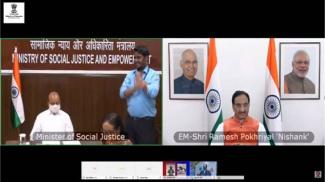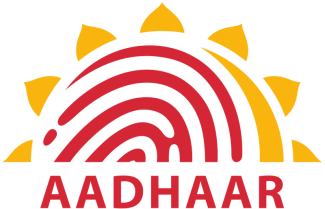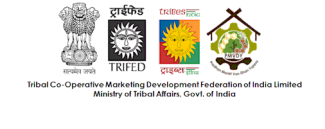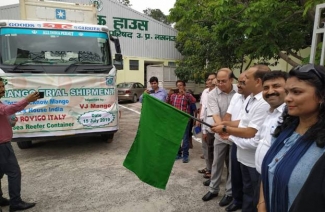
Union Education Minister RameshPokhriyal ‘Nishank’ and Union Minister for Social Justice and Empowerment, Dr. Thaawarchand Gehlot attended the 60th Foundation Day of NCERT virtually on Tuesday.
On this occasion, a historic Memorandum of Understanding (MoU) was signed between Indian Sign Language Research and Training Center-ISLRTC (a National Institute of DEPwD, Ministry of Social Justice and Empowerment) and NCERT (a National Institute of Ministry of Education) to make education materials accessible for Deaf children in their preferred format of communication viz Indian Sign Language. This MoU was signed in the virtual presence of the Union Ministers, Secretary, DEPwD, Shakuntala Doley Gamlin, and Secretary, (SE&L) Anita Karwal, Ministry of Education. Dr. Prabodh Seth, Joint Secretary, DEPwD & Director, ISLRTC and Prof. Hrushikesh Senapathy, Director, NCERT signed the MoU from the respective institutes.During the programme the online format of NISHTHA training was also released.
The Education Minister in his address congratulated NCERT on its 60th Foundation Day and said that signing of MoU between NCERT and ISLRTC for converting NCERT educational materials in to Indian sign language ensures educational standardization of Indian Sign Language as mandated in the New Education Policy (NEP), 2020. He said that DEPwD under Ministry of Social Justice and Empowerment has done remarkable works for the welfare and upliftment of Divyangjan in the country for the past 6 years and many new records have also been made on its achievements. Definitely this MoUwill empower the hearing impaired children in our country. He hoped that New Education Policy, 2020 is an inclusive one and will transform our country.
Pokhriyal said that the MoU between NCERT and ISRTC is not only a cooperation pact between the two institutions, but it is also a step towards better coordination between the two ministries, the Ministry of Education and the Ministry of Social Justice and Empowerment.Through this MoU, we are moving towards realizing the provisions mentioned in the Right to Education (RTE) 2009, and the Rights of Persons with Disability Act (RPWD) 2016 and the National Education Policy (NEP) 2020, such as the use of appropriate and alternative means of communication, in which Sign Language has an important place, he added.
While speaking on releasing of online format of NISHTHA training, The Education Minister said that the system of Education in India is very vast with 85 lakhs teachers and 26 crores students. Providing equitable and quality education to all is our mandate. The COVID-19 has also forced all the schools/colleges to stop regular teaching-learning-assessment processes and also teacher training in face-to-face (FTF) mode. The most ambitious NISHTHA integrated training for 42 lakhs teachers (planned through face-to-face mode) at elementary education level (Classes 1 to 8) has come to a stand still. Under NISHTHA face-to- face training, 23,137 SRGs and 17,74,728 Teachers and head teachers working in state governed schools were covered from 33 States/UTs in a span of eight months. The learning continuum of teachers and students can not be restricted due to the lack of readiness to face the lock down or due to the diversity and huge population. Therefore, NCERT has planned to continue NISHTHA - integrated teacher training using DIKSHA platform and reach out to 42 Lakh elementary school teachers and its further extension to all as well.
Addressing on the occasion, Dr. Thaawarchand Gehlot said that the signing of this MoU is a historic step as availability of NCERT textbooks in Indian Sign Language (ISL) will ensure that Hearing Impaired children can also now access educational resources in Indian Sign Language and it will be a useful and much needed resource for Hearing Impaired students, teachers, teacher educators, parents and the Hearing Impaired community, which in turn will have a huge impact on the education of Hearing Impaired children in the country. After this MoU, NCERT educational books and materials will be available in Indian Sign Language which is same all over India, which means all hearing impaired students of India whether from East or West or North or South, they all will read NCERT books in a single language i.e. Indian Sign Language. Indian Sign Language denotes Unity in Diversity which is explained through Hands and understood through Eyes and it connects all hearing impaired people of our country all together.
Gehlot said that as part of this MoU, educational print materials such as NCERT Textbooks, Teachers Handbook and other Supplementary materials and resources of Class I-XII of all subjects of both Hindi and English Medium will be converted into Indian Sign Language in Digital format.
In her address, Anita Karwal said that the New Education Policy, 2020 has focused on the Multi Lingual Education. Now NCERT under Ministry of Education will develop a Sign Language Module for Indian Sign Language. She congratulated NCERT on 60th Foundation Day as well as for signing this historic MoU with ISLRTC for converting NCERT educational materials in to Indian sign language.
Shakuntala D. Gamlin in her address said that in the childhood days, the cognitive skills of children are developed and it is very necessary to provide them educational material as per their learning needs. So far, hearing impaired children used to study only through verbal or written medium but after signing of this MoU, they can study through single Indian Sign Language also. It will not only enhance their vocabulary but also enhance their capabilities to understand concepts. Signing of this MoU is based on the UNICEF’s initiative “Accessible Digital Textbooks for All” and it is a landmark decision.
Indian Sign Language Research and Training Centre (ISLRTC) is an autonomous national institute of DEPwD, MSJE which is dedicated to the task of developing man-power for popularizing the use of Indian Sign Language, teaching and conducting research in Indian Sign Language.NCERT is an autonomous organization under MHRD which is responsible for ensuring qualitative improvement in school education by undertaking and promoting research in areas related to school education; prepare and publish model textbooks, supplementary material, newsletters, journals and develops educational kits, multimedia digital materials, etc. develop and disseminate innovative educational techniques and practices; and act as a nodal agency for achieving the goals of Universalization of Elementary Education.











